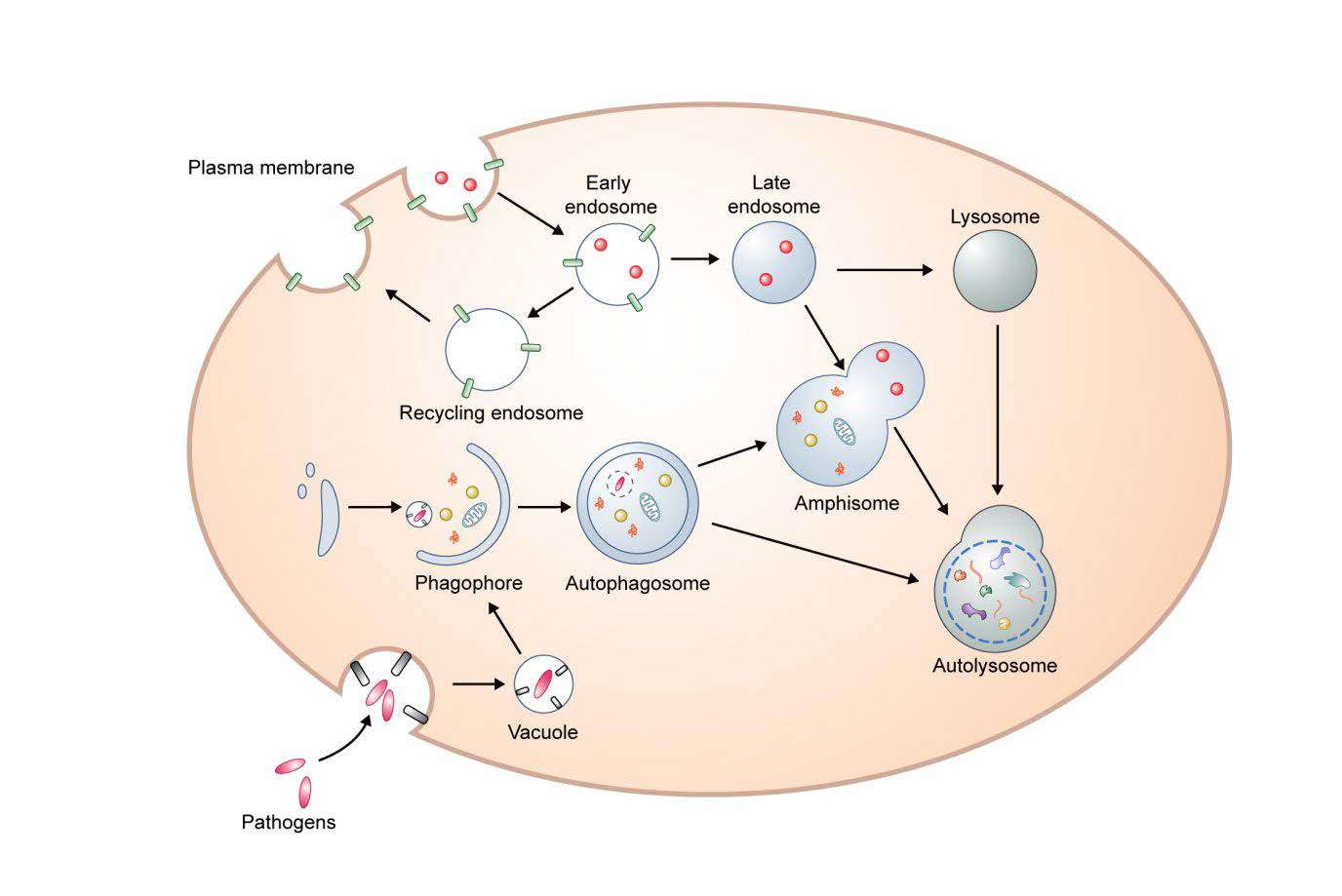Articles
Article Tools
Stats or Metrics
Article
Review Article
Exp Neurobiol 2019; 28(6): 643-657
Published online November 27, 2019
https://doi.org/10.5607/en.2019.28.6.643
© The Korean Society for Brain and Neural Sciences
Autophagy, Cellular Aging and Age-related Human Diseases
So Yeong Cheon1,2, Hyunjeong Kim1,2, David C. Rubinsztein1,3* and Jong Eun Lee2,4*
1Department of Medical Genetics, Cambridge Institute for Medical Research (CIMR), University of Cambridge, Cambridge CB2 0XY, United Kingdom, 2Department of Anatomy, Yonsei University College of Medicine, Seoul 03722, Korea, 3UK Dementia Research Institute, University of Cambridge, Cambridge CB2 0AH, United Kingdom, 4BK21 PLUS Project for Medical Science, and Brain Research Institute, Yonsei University College of Medicine, Seoul 03722, Korea
Correspondence to: *To whom correspondence should be addressed.
David C. Rubinsztein, TEL: 44-1223-762608, FAX: 44-1223-331206
e-mail: dcr1000@cam.ac.uk
Jong Eun Lee, TEL: 82-2-2228-1646, FAX: 82-2-365-0700
e-mail: jelee@yuhs.ac
This is an Open Access article distributed under the terms of the Creative Commons Attribution Non-Commercial License
(http://creativecommons.org/licenses/by-nc/4.0) which permits unrestricted non-commercial use, distribution, and
reproduction in any medium, provided the original work is properly cited.
Abstract
Macroautophagy/autophagy is a conserved degradation system that engulfs intracytoplasmic contents, including aggregated proteins and organelles, which is crucial for cellular homeostasis. During aging, cellular factors suggested as the cause of aging have been reported to be associated with progressively compromised autophagy. Dysfunctional autophagy may contribute to age-related diseases, such as neurodegenerative disease, cancer, and metabolic syndrome, in the elderly. Therefore, restoration of impaired autophagy to normal may help to prevent age-related disease and extend lifespan and longevity. Therefore, this review aims to provide an overview of the mechanisms of autophagy underlying cellular aging and the consequent disease. Understanding the mechanisms of autophagy may provide potential information to aid therapeutic interventions in age-related diseases.
Graphical Abstract

Keywords: Autophagy, Aging, DNA damage, Oxidative stress, Telomere shortening, SASP


